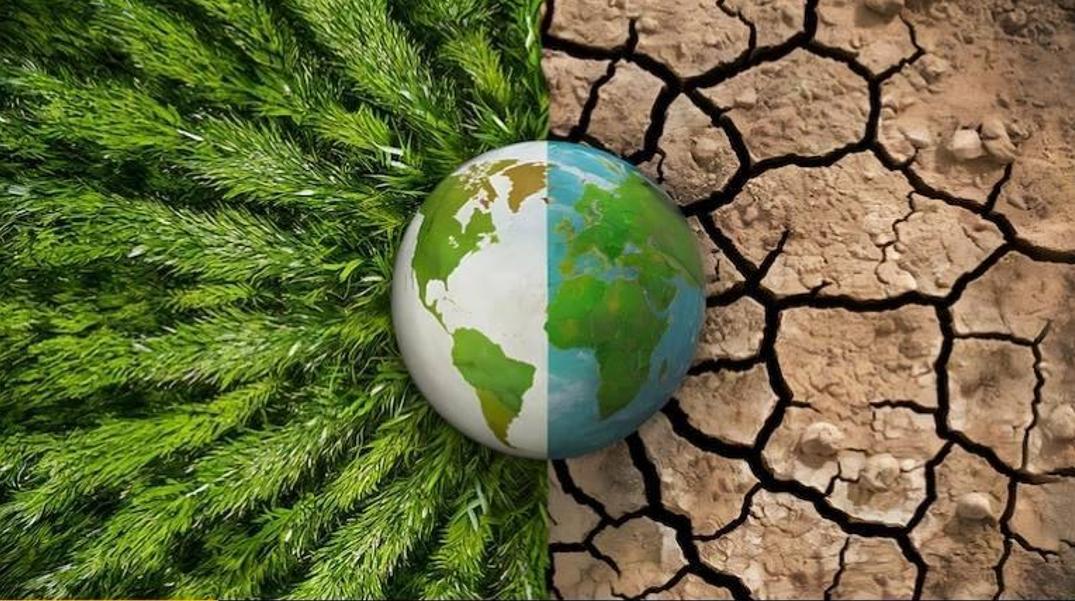Africa-Press – Eswatini. The escalating climate crisis is delivering dire warnings for humanity’s future, with the World Health Organization(WHO) projecting that between 68 and 135 million people could be driven into extreme poverty over the next five years due to climate-related impacts.
In a stark statement, the WHO outlined the growing link between environmental degradation and public health, revealing that air pollution alone causes approximately 7 million premature deaths each year.
The organisation emphasised that without decisive action, these figures will continue to rise, particularly among the world’s most vulnerable populations.
“As climate change accelerates, access to basic needs like clean air, safe water, and reliable food sources is increasingly under threat,” the WHO warned.
“These shortages disproportionately affect those already facing socio-economic hardship, pushing communities deeper into poverty and illness.”
Erratic weather patterns, prolonged droughts, intense flooding, and other extreme events are straining health systems and destabilising economies.
These cascading effects create a vicious cycle—damaging agriculture, reducing food security, and overwhelming already under-resourced healthcare infrastructure.
“The health of our planet is directly tied to the health of its people,” said Dr. Tedros Adhanom Ghebreyesus, WHO Director-General.
“Failing to act on climate change means more disease, more hunger, and a worsening of inequalities across the globe.”
Air pollution continues to be one of the most lethal environmental risks, particularly for children, the elderly, and people with pre-existing health conditions.
The WHO reports a rise in asthma, cardiovascular problems, and respiratory illnesses in highly polluted regions, exposing an urgent public health emergency often overshadowed by broader climate debates.
The WHO has urged governments, industries, and individuals to treat climate action not just as an environmental priority but as a public health necessity.
The transition to renewable energy, investment in sustainable infrastructure, and reduction of greenhouse gas emissions are critical in mitigating the health and economic consequences forecasted for the coming years.
While global agreements such as the Paris Accord provide a roadmap for climate action, the WHO stressed the importance of community-level participation.
Climate Change Threatens Global Health and Increases Poverty Risk, Warns WHO Local solutions and grassroots activism are vital to raising awareness and building resilience, especially in marginalised communities that are often on the frontline of climate impacts.
“The fight against climate change isn’t just about protecting the environment,” the WHO said. “It’s about saving lives, lifting people out of poverty, and preserving the well-being of future generations.”
Understanding Climate Change
Climate change represents one of the most urgent and complex challenges facing the world today.
It refers to long-term shifts in global temperatures and weather patterns, largely driven by human activities such as deforestation, industrialisation, and the burning of fossil fuels.
These actions increase the concentration of greenhouse gases (GHGs) like carbon dioxide (CO2) and methane (CH4) in the atmosphere, leading to global warming.
According to the Intergovernmental Panel on Climate Change (IPCC), the Earth’s temperature has risen by approximately 1.1°C since pre-industrial times.
Without intervention, this trend threatens to trigger irreversible changes to ecosystems, weather patterns, and human livelihoods.
Extreme weather events—raging wildfires, more powerful hurricanes, and persistent droughts—are becoming more frequent and severe.
These disasters not only displace communities but also jeopardise food and water security, especially in developing regions that lack the infrastructure to recover quickly.
The environmental toll is staggering. Oceans are warming and acidifying, damaging marine biodiversity and coral reefs.
Land ecosystems are similarly under threat, with animal and plant species struggling to adapt, leading to biodiversity loss and disrupted food chains.
The human cost is equally devastating. Climate change exacerbates respiratory illnesses, spreads vector-borne diseases, and increases the risk of heat-related conditions.
Mental health issues are also rising, as communities contend with displacement, economic instability, and the trauma of recurring climate disasters.
Economically, the cost of inaction is immense. Studies estimate that unchecked climate change could cost the global economy trillions of dollars through infrastructure damage, lost productivity, and rising healthcare expenses.
Sectors such as agriculture and tourism—critical for many developing nations—are particularly vulnerable.
Addressing these risks demands coordinated global action. The Paris Agreement, signed by nearly 200 countries, aims to limit temperature increases to well below 2°C, with a more ambitious goal of capping the rise at 1.5°C.
Achieving these targets requires sweeping changes in how the world produces energy, manages land, and consumes resources.
But governments alone cannot win the fight. Community-led initiatives—from promoting local agriculture to restoring forests and educating citizens—are key to driving grassroots transformation.
Climate change is not a distant threat; it is a current crisis with profound consequences for global health, poverty, and development.
The WHO’s latest statement is a wake-up call for collective responsibility—from policymakers to ordinary citizens.
The world still has time to avoid the worst outcomes, but only if urgent and unified action is taken now.
As the WHO underscores, climate solutions are not just about reducing emissions—they’re about protecting the health and dignity of every person on the planet.
Source: Eswatini Daily News
For More News And Analysis About Eswatini Follow Africa-Press







